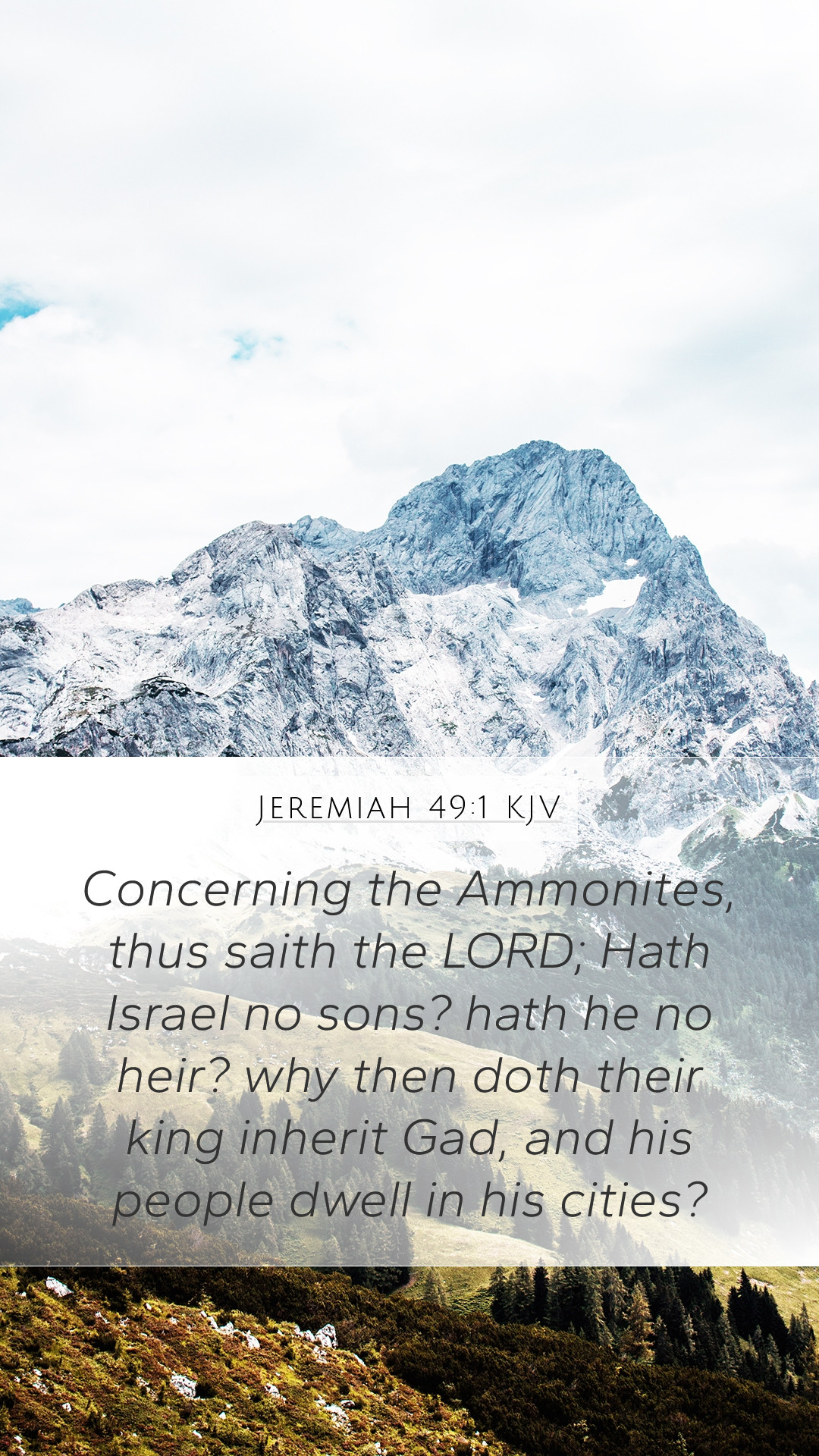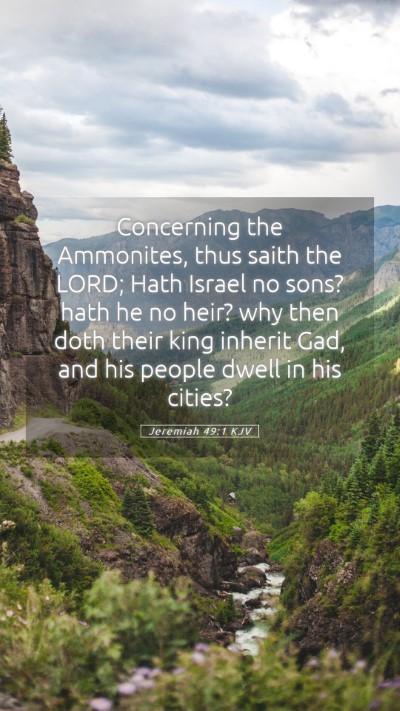Understanding Jeremiah 49:1
Jeremiah 49:1 states: "Concerning the Ammonites. Thus says the Lord: 'Has Israel no sons? Has he no heir? Why then does Milcom inherit Gad, and his people dwell in its cities?'" This verse addresses the fate of the Ammonites and uses rhetorical questions to illustrate God's sovereignty and the rightful inheritance of Israel.
Contextual Background
This passage falls within a broader context of prophecy against various nations, showcasing Jeremiah's role as a prophet who relays God's judgments.
- Historical Context: The Ammonites were descendants of Lot and often at odds with Israel. Their claim to land previously belonging to Gad is challenged in this verse.
- Geopolitical Insights: At the time of Jeremiah's writing, the Ammonites had taken advantage of Israel's weaknesses, suggesting a divine warning of impending judgment.
Bible Verse Commentary
This verse demonstrates the folly of the Ammonites in believing they could claim Israel's territory without divine sanction. Matthew Henry emphasizes the significance of God's covenant with Israel, indicating that no foreign entity holds rightful claim to what belongs to God's people.
Insights from Commentators
- Matthew Henry: Focuses on the rhetorical question posed to highlight God's providence, suggesting that the Ammonites’ attempts to occupy Gad were futile given God's promises to Israel.
- Albert Barnes: Analyzes the moral implications of the verse, suggesting that the invasion of the Ammonites into Gad's territory reflects a greater disdain for God's authority.
- Adam Clarke: Emphasizes the significance of Milcom, the god of the Ammonites, as a false deity, drawing a contrast between the true God and idols, further establishing the righteousness of God's judgment.
Bible Verse Interpretation
Jeremiah 49:1 serves as a reminder of God's enduring covenant with His people. The inquiries regarding Israel's sons and heirs serve a dual purpose: to remind Israel of their divine heritage and to underscore the illegitimacy of the Ammonites' claim.
Key Themes
- Sovereignty of God: This verse clearly articulates that all lands and peoples are under God's authority.
- Covenant Relationship: It highlights the covenant between God and Israel, affirming that their inheritance is divinely ordained.
- Judgment Against Foreign Nations: It forecasts God's planned judgment against nations that oppose His people.
Applications and Insights for Bible Study
For those studying this verse, whether in Bible study groups or online Bible study, consideration of its implications can lead to deeper understanding.
- Bible Study Lessons: How do we interpret foreign claims on God's blessings in our lives today?
- Practical Applications: Reflect on what it means for the church today to understand its divine inheritance.
- Bible Study Resources: Utilize tools that provide insights into the historical and cultural context of Scripture.
Cross References
This verse resonates with several other biblical passages that deal with themes of inheritance, prophecy, and judgment:
- Deuteronomy 2:19: Discusses God’s command to not distress the Ammonites.
- Jeremiah 1:10: Highlights God's authority over nations.
- Isaiah 15-16: Contains prophecies against Moab, closely related to the Ammonite situation.
Conclusion
In conclusion, Jeremiah 49:1 serves as a profound reminder of God's sovereignty and the illegitimacy of claims made against His people. Its insights are crucial for both Bible study insights and understanding Scripture. Those seeking Bible verse explanations will find in this verse an invitation to reflect on God’s justice in the face of human strife.


